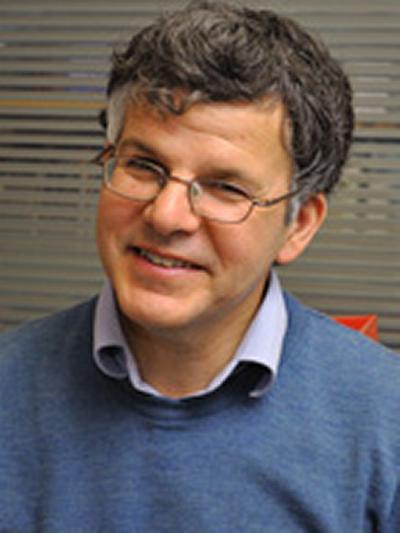Southampton academics mark Holocaust memorial day
Holocaust experts from the University of Southampton will be taking part in events to mark the second Holocaust Memorial Day in Britain on Sunday (27 January).
The national theme this year is Britain and the Holocaust. At an event in Southampton, tributes will be paid to the memory of James Parkes-a man with strong connections both to Southampton and to the Holocaust.
James Parkes worked tirelessly to publicise the fate of the Jews in Europe under the Nazis and to encourage the Allied governments to save those that could be rescued.
Originally from Guernsey, he became a Church of England clergyman after surviving the trenches of the First World War. From the 1920s he devoted his life to combating antisemitism and all forms of racism and hatred.
In later years he donated his library and archive to the University of Southampton. The Parkes Institute for the Study of Jewish/non Jewish relations, based at the University, is named in his memory.
In January 1943 James Parkes wrote an article on the massacre of the Jews, which outlined in detail how several million Jews had already been murdered and how an even greater number were at risk. Parkes was particularly concerned at the reasons given by the British government for not considering schemes of rescue, which might bring Jewish refugees to Britain.
At a memorial event to be held at Southampton Institute (James Matthews Building, Above Bar Street) on Sunday at 3.00pm, the article by Parkes, calling on the British people to take action to save the Jews, will be read publicly for the first time by Professor Tony Kushner of the University of Southampton. Professor Kushner says, "This article, which was never published, is important for revealing what was known during the war and the willingness of many in Britain to campaign for people far away and in different worlds."
In an essay published on the national Home Office website marking Holocaust Memorial Day, Professor David Cesarani, Director of the AHRB Parkes Centre at the University, writes: "The Holocaust is a part of our national story because it impinges directly on the history of these islands and its peoples. Thousands of Jews found refuge in Britain during the 1930s and several hundred survivors of the death camps came to Britain after the war. The refugees and survivors eventually became British citizens and built families in this country. Many ordinary British people helped the refugees and some were subsequently recognised as Righteous Gentiles for saving Jews from danger.
"Britain fought Nazi Germany for six years and, thanks to their courage and sacrifice, British service personnel helped to save the remnant of European Jewry from annihilation. British troops liberated the Bergen-Belsen concentration camp and rescued tens of thousands of Jews from death.
"However, questions remain over whether more could have been done, and sooner, to succour the victims of Nazi persecution," he adds.
Mark Levene , Reader in Comparative History at the University, will be attending two events in London this weekend. The first, at the Wiener Library, is an international conference on Generations of Genocide, where Dr Levene will deliver a plenary lecture. The second, at the Sternberg Centre, is a conference to mark Holocaust Memorial Day.
The University has also been involved in producing Holocaust Memorial Day resource materials for teachers.
Working with the Department for Education and Skills, Dr Jo Reilly of the AHRB Parkes Centre helped produce material looking at the less well-known angles of the relationship between Britain and the Holocaust.
Related Staff Member
Related Staff Member
Notes for editors
The University of Southampton is a leading UK teaching and research institution with a global reputation for leading-edge research and scholarship. The University, which celebrates its Golden Jubilee in 2002, has 20,000 students and over 4,500 staff and plays an important role in the City of Southampton. Its annual turnover is in the region of £215 million.

